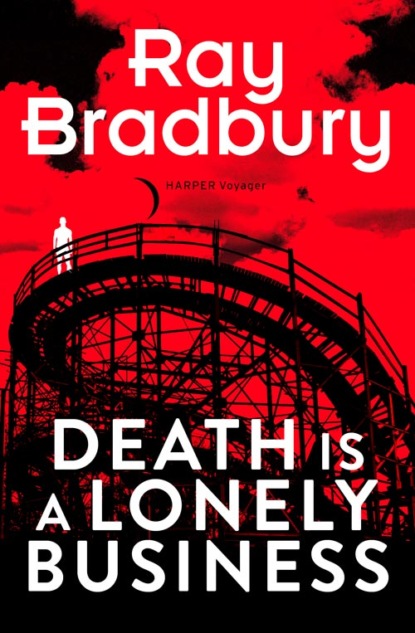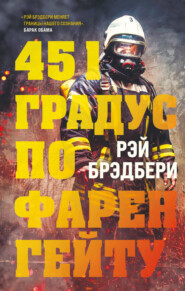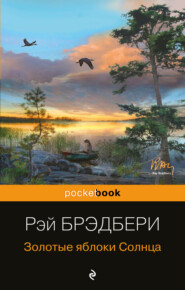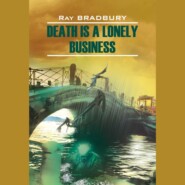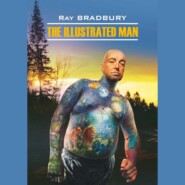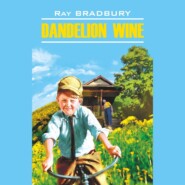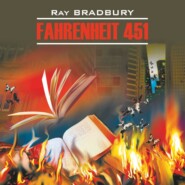По всем вопросам обращайтесь на: info@litportal.ru
(©) 2003-2024.
✖
Death is a Lonely Business
Настройки чтения
Размер шрифта
Высота строк
Поля
“Oh,” he moaned, even louder. It was like someone falling off a cliff, asking to be saved, or someone swimming far out in the storm, wanting to be seen.
“Ah!”
It was raining hard now as the big red trolley bucketed across a midnight stretch of meadow-grass and the rain banged the windows, drenching away the sight of open fields. We sailed through Culver City without seeing the film studio and ran on, the great car heaving, the floorboard whining underfoot, the empty seats creaking, the train whistle screaming.
And a blast of terrible air from behind me as the unseen man cried, “Death!”
The train whistle cut across his voice so he had to start over.
“Death—”
Another whistle.
“Death,” said the voice behind me, “is a lonely business.”
I thought he might weep. I stared ahead at the flashing rain that rushed to meet us. The train slowed. The man rose up in a fury of demand, as if he might beat at me if I didn’t listen and at last turn. He wanted to be seen. He wished to drown me in his need. I felt his hands stretch out, and whether as fists or claws, to rake or beat me, I could not guess. I clutched the seat in front of me. His voice exploded.
“Oh, death!”
The train braked to a halt.
Go on, I thought, finish it!
“Is a lonely business!” he said, in a dreadful whisper, and moved away.
I heard the back door open. At last I turned.
The car was empty. The man had gone, taking his funeral with him. I heard gravel crunching on the path outside the train.
The unseen man was muttering out there to himself as the doors banged shut. I could still hear him through the window. Something about the grave. Something about the grave. Something about the lonely.
The train jerked and roared away through the long grass and the storm.
I threw the window up to lean out and stare back into wet darkness.
If there was a city back there, and people, or one man and his terrible sadness, I could not see, nor hear.
The train was headed for the ocean.
I had this awful feeling it would plunge in.
I slammed the window down and sat, shivering.
I had to remind myself all the rest of the way, you’re only twenty-seven. You don’t drink. But …
I had a drink, anyway.
Here at this far lost end of the continent, where the trail wagons had stopped and the people with them, I found a last-stand saloon, empty save for a bartender in love with Hopalong Cassidy on late night TV.
“One double vodka, please.”
I was astounded at my voice. Why was I drinking? For courage to call my girlfriend; Peg, two thousand miles away in Mexico City? To tell her that I was all right? But nothing had happened to me, had it?
Nothing but a train ride and cold rain and a dreadful voice behind me, exhaling vapors of fear. But I dreaded going back to my apartment bed, which was as empty as an icebox abandoned by the Okies on the way west.
The only thing emptier was my Great American Novelist’s bank account in an old Roman temple bank building on the edge of the sea, about to be washed away in the next recession. The tellers waited in rowboats every morning, while the manager drowned himself in the nearest bar. I rarely saw any of them. With only an occasional sale to a pulp detective magazine, there was no cash to deposit. So …
I drank my vodka. I winced.
“Jesus,” said the bartender, “you look like you never had booze before!”
“I never did.”
“You look horrible.”
“I feel horrible. You ever think something awful is going to happen, but you don’t know what?”
“It’s called the heebie-jeebies.”
I swallowed more vodka and shivered.
“No, no. Something really terrible, closing in on you, is what I mean.”
The bartender looked over my shoulder as if he saw the ghost of the man on the train there.
“Did you bring it in with you?”
“No.”
“Then it’s not here.”
“But,” I said, “he spoke to me—one of the Furies.”
“Furies?”
“I didn’t see his face. God, I feel worse now. Good night.”
“Lay off the booze!”
But I was out the door and peering in all directions to catch the thing that was waiting for me. Which way home, so as not to meet up with darkness? I chose.
And knowing it was the wrong choice, I hurried along the dark rim of the old canal toward the drowned circus wagons.
How the lion cages got in the canal no one knew. For that matter, no one seemed to remember how the canals had gotten there in the middle of an old town somehow fallen to seed, the seeds rustling against the doors every night along with the sand and bits of seaweed and unravelings of tobacco from cigarettes tossed along the strand-shore as far back as 1910.
But there they were, the canals and, at the end of one, a dark green and oil scummed waterway, the ancient circus wagons and cages, flaking their white enamel and gold paint and rusting their thick bars.
A long time before, in the early Twenties, these cages had probably rolled by like bright summer storms with animals prowling them, lions opening their mouths to exhale hot meat breaths. Teams of white horses had dragged their pomp through Venice and across the fields long before MGM put up its false fronts and made a new kind of circus that would live forever on bits of film.





